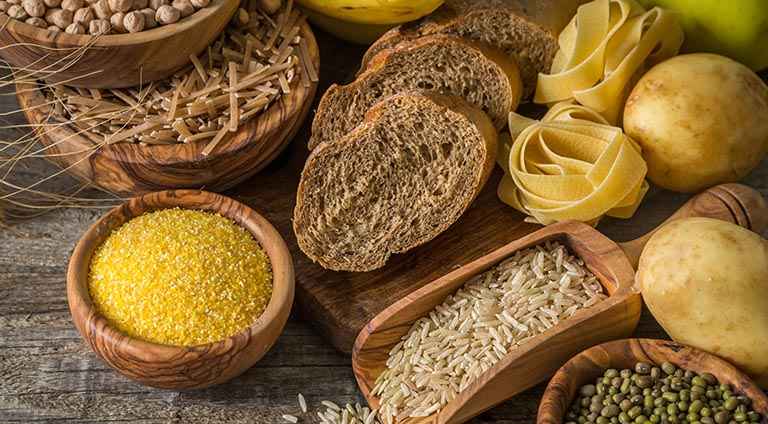Today, we are surrounded by dietary advice: Eat less carbs, eat more protein, avoid processed foods, and so on. The validity of the suggestions can be discussed later. But, amidst the chaos of endless diet plans and detoxes, you should not miss out on one of the most essential elements of your diet: Fiber. It is the non-digestible component of food. Medical practitioners, dietitians and nutritionists across the world advise on the recommended fiber intake because it helps with not only digestion but also offers several other benefits.
WHAT IS FIBER?
Dietary fiber is mainly found in fruits, vegetables, whole grains, legumes, etc. It is also called roughage or bulk which is not digested or absorbed by the body. Unlike carbohydrates, protein and fat, your body is unable to break down fiber and it passes through your body without absorption. There are mainly two categories of dietary fiber:
Soluble Fiber: Dissolves in water. It helps in lowering blood cholesterol and glucose. Soluble fiber is available in oats, peas, beans, legumes, barley,apples, citrus fruits, etc.
Insoluble Fiber: It doesn’t dissolve in water and is mainly used for the healthy movement of bowels. You can get insoluble fiber from whole-wheat flour, wheat bran, nuts, vegetables such as cauliflower, dark leafy greens, etc.
FIBER: WHY SHOULD YOU CONSUME IT?
Better Bowel Movement: By increasing the bulk of your stools, fiber makes it easier for you to pass stools. If you are constipated for a majority of the time, increasing the amount of fiber in your diet can relieve you from the problem.
Lower Cholesterol Levels: Soluble fiber is proven to bring down levels of LDL-bad cholesterol that may harm your body and lead to multiple health issues. By increasing fiber, you reduce blood pressure and inflammation problems as well.
Control Blood Sugar Levels: Fiber has been known to help people with insulin resistance. If you have diabetes, you need to ensure that your blood sugar levels do not rise and fall rapidly. By including fiber in your diet, you will be able to achieve your goal.
Weight Reduction: When you increase the amount of dietary fiber, it gives you the feeling of being full for a longer time. You are more likely to eat less, be in a caloric deficit and thus, see a reduction in your weight.
Reduce the Risk of Diseases: By opting for more dietary fiber, you can reduce the risk of several gastrointestinal disorders. There are several studies which show a relation between increase in fiber and reduction in Irritable Bowel Disease (IBD). It also reduces the risk of Crohn’s disease.
Reduce the Risk of Cancer: An experienced stomach doctor will tell you that a diet in high in fiber is known to reduce the risk of colon cancer. Countries with higher consumption of fiber saw a reduced risk of colorectal cancer and stomach cancer.
HOW MUCH FIBER SHOULD YOU EAT EVERY DAY?
According to the Indian Dietetic Association, the intake of dietary fibre in the country varies among different socioeconomic groups from 15 to 41 g/day. The American Health Association recommends daily fibre intake in the range of 25-30 grams per day. According to the Indian Council of Medical Research, the daily diet of an adult should contain 40 grams of dietary fibre. A diet with a very large amount of fibre is not favourable because it may lead to higher levels of satiety without providing adequate nutrients.
HOW CAN YOU IMPROVE THE CONSUMPTION OF FIBER IN YOUR DIET?
By opting for a varied diet that consists of high amount of fresh fruits and vegetables, you can increase the intake of dietary fiber. Increase the servings of vegetables and fruits in your diet with adequate intake of water. The traditional Indian diet consists of a majority of vegetables and unrefined grains which makes it easy to meet the dietary requirements.
Refined foods such as biscuits, breads, pastas, canned fruits, canned juices, etc. are low in fibrer Even usage of refined grain strips the outer layer of grain, thus reducing the fiber content. If you are unable to meet the daily requirements of fiber or the problem of irregular bowel movements persists, you must contact a doctor before using fiber supplements or foods that have the label “added fiber”.
Are you troubled by gastrointestinal ailments? Do you want to seek immediate medical attention? Visit Dr. Jay Chokshi, the reputed gastro surgeon of Surat, is South Gujarat’s First National Board-Certified HPB and GI cancer surgeon. To book an appointment, call on +91-9825718911 or +91-8984858181.





